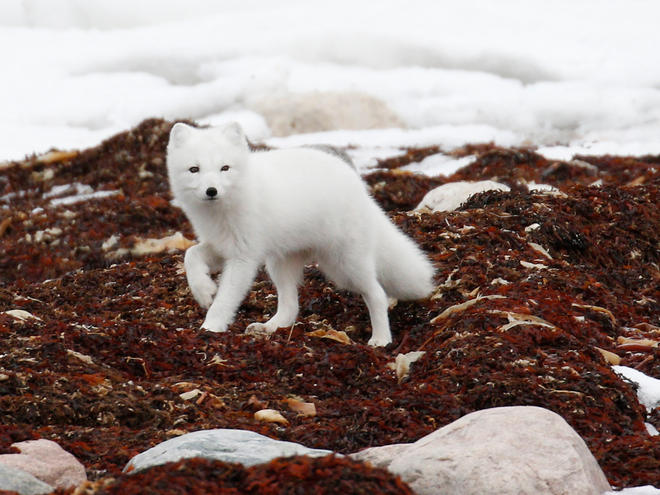
Plans to expand oil and gas drilling in the United States’ Arctic hit a roadblock in the federal courts, which prompted the government to pull plans for this year. Unfortunately, the icy waters off of Alaska remain at risk—and not just from oil and gas.
Though the US government is meeting some of its commitments in the Arctic, not enough is being done and, in many instances, the government is backsliding, according to a new analysis commissioned by WWF.
First, the good news
WWF’s Arctic Council Conservation Scorecard—which scores all Arctic nations on the progress they’ve made toward Arctic Council recommendations—found that the US continues to perform well in the area of monitoring Arctic sea ice and other ecological conditions. This is important as the region continues to warm faster than any other place on Earth, creating a cascade of impacts that nature and people everywhere are forced to live with.
In December 2018, voluntary shipping routes and so-called ‘Areas to Be Avoided’ by ships went into effect in the Aleutian Islands, Bering Sea, and Bering Strait. The US and Russia agreed on the measures and ship traffic is largely respecting the rules to enhance maritime safety and protect marine areas with ecological importance and subsistence values.
But we’re still missing the mark
Aside from science and shipping, there are many instances in which the government is trying to reverse existing environmental and management standards.
Since 2017, the US government has attempted to jump-start fossil fuel exploration in the Chukchi and Beaufort seas. And even though the courts have effectively frozen such plans, the US government hasn’t given any indication that it will stop efforts to auction off areas offshore with the hopes of industry drilling more.
On paper, the US has a strategy for the Arctic but there is no mention of biodiversity-related objectives. Likewise, resilience and adaptation to climate change are also missing, directly impacting the security of indigenous and local communities in America’s Arctic.
Ultimately researchers had limited access to data and experts from the US government, which makes grading national efforts more difficult. Some government employees and agencies declined to share information due to current politics around the role of government in science and vice versa. The government shutdown in early January 2019 also likely impacted participation.
What’s next
WWF delivered the findings to Arctic Council members with a message to accelerate ambition and action to safeguard nature and people living in the Arctic.
“The future of the Arctic is being shaped by the actions taken today,” said David Aplin, director of education and outreach, WWF’s Arctic Field Program. “The people of Alaska and the environment on which communities so greatly depend are directly impacted by the shortcomings identified in the Arctic Scorecard. Governments must do more to protect biodiversity through strengthened governance and international cooperation.”
Published April 30, 2019 at 05:00AM
No comments:
Post a Comment